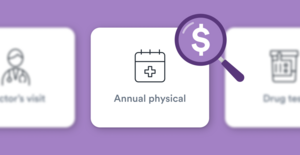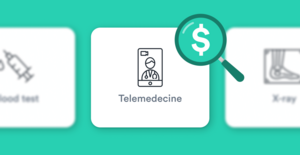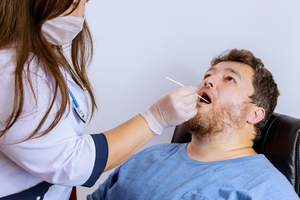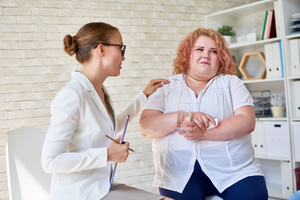Key points
- The chickenpox vaccine helps build protection against the varicella-zoster virus, reducing the risk of complications and long-term issues like shingles.
- The CDC recommends the vaccine for most people who haven’t had the disease or been vaccinated before, with specific schedules for children, teens, and adults.
- Certain individuals, such as those who are pregnant, have weakened immune systems, or have had serious allergic reactions, should not receive the vaccine.
- While the vaccine can have side effects, most are mild and temporary, and the benefits of vaccination far outweigh the risks.
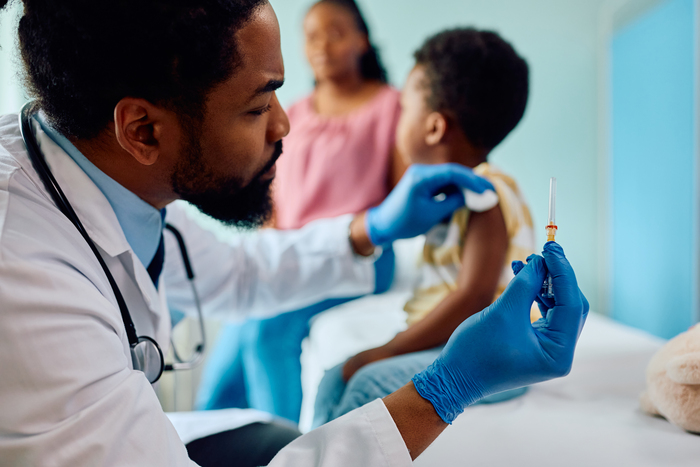
If you or your child has never had chickenpox, you might be wondering about the chickenpox vaccine — whether you need it, if it’s safe, and where to get it. Chickenpox might seem like a harmless childhood illness, but it can cause serious complications, especially in adults and people with weakened immune systems. The good news is that the chickenpox vaccine (also called the varicella vaccine) offers strong protection against the virus. It helps prevent uncomfortable symptoms, reduces the risk of missed school and work, and protects against long-term issues like shingles.
Here’s what you need to know about who should and shouldn’t get the vaccine — and how to get it if you need one:
What is the chickenpox vaccine?
The chickenpox vaccine is a shot that helps your body build protection against the varicella-zoster virus, which causes chickenpox. It's called a “live attenuated” vaccine, meaning it contains a weakened version of the virus that trains your immune system to recognize and fight it — without causing the full-blown illness.
Once you're vaccinated, your immune system knows how to respond if you're ever exposed to the real virus. This makes it much less likely that you'll get sick — and if you do, your symptoms will be milder.
Who should get the chickenpox vaccine?
The Centers for Disease Control and Prevention (CDC) recommends the chickenpox vaccine for most people who haven’t had the disease or been vaccinated before.
Here’s how it breaks down by age and situation:
For children:
- First dose: between 12 and 15 months old
- Second dose: between 4 and 6 years old
This two-dose schedule helps make sure kids are fully protected before they start school or daycare, where chickenpox can spread quickly.
For teens and adults:
If you never had chickenpox and never got the vaccine, you should get two doses of the vaccine at least 4–8 weeks apart. This is especially important for people in certain higher-risk groups, such as:
- Healthcare workers
- Teachers and childcare staff
- College students
- International travelers
- Non-immune adults living with children
- People in correctional facilities or group homes
Even if you're not sure whether you've had chickenpox before, a blood test can check your immunity. It's a good idea to ask your doctor, especially if you're in one of the groups above or planning to travel.
Who shouldn’t get the chickenpox vaccine?
While the vaccine is safe for most people, there are some exceptions. You should not get the chickenpox vaccine if:
- You’re pregnant
- You have a weakened immune system due to cancer treatment, organ transplant, or diseases like HIV
- You’ve had a serious allergic reaction to gelatin, neomycin, or a previous dose of the vaccine
- You’re currently very sick, with moderate to severe illness (wait until you’re better)
If any of these apply to you — or if you're unsure — talk to your doctor before getting vaccinated. In some cases, a different strategy might be recommended to protect you from chickenpox or its complications.
Is the chickenpox vaccine safe?
Yes, the chickenpox vaccine has been used safely for more than 25 years. Like any vaccine, it can have side effects — but most are mild and go away quickly. The benefits of vaccination far outweigh the risks, especially considering the serious complications chickenpox can cause in adults.
Common side effects include:
- Redness or swelling at the injection site
- Mild rash (looks like a few chickenpox spots)
- Low-grade fever
Rare side effects include:
- Febrile seizures (very rare and usually not dangerous)
- Serious allergic reactions (extremely rare)
If you're concerned about side effects or allergic reactions, bring it up with your healthcare provider. They can help you weigh the risks and benefits of your specific situation.
Chickenpox vaccine vs. natural immunity
Some people wonder if it’s better to get chickenpox “naturally” instead of getting the vaccine, but doctors strongly recommend vaccination for several important reasons. When you get chickenpox naturally, you become sick and contagious for about a week, often dealing with uncomfortable symptoms like an itchy rash, fever, and fatigue. More importantly, natural infection carries a higher risk of complications such as pneumonia, skin infections, or even hospitalization. Recovery can be long and miserable, especially for adults.
On the other hand, the chickenpox vaccine helps you avoid the illness entirely — or results in a much milder case if you’re exposed. It significantly lowers the risk of complications and also reduces your chances of developing shingles later in life, a painful condition linked to the chickenpox virus. While natural infection can lead to lifelong immunity, it comes at a much greater cost to your health and comfort. The vaccine provides strong, lasting protection with far fewer risks.
Where to get the chickenpox vaccine
Ready to get vaccinated or schedule a dose for your child? Here are some common places that offer the chickenpox vaccine:
- Pediatrician offices
- Family medicine or primary care doctors
- Urgent care centers
- Pharmacies
- Local public health departments
Before heading in, check your vaccine records to see if you’ve already had both doses. Insurance usually covers the chickenpox vaccine, but you can call ahead to confirm.
Book your chickenpox vaccine near you
Chickenpox may not be as common as it once was, but the virus hasn’t gone away — and neither has the risk. Getting the chickenpox vaccine is a simple, effective way to protect yourself and your family from a painful illness and possible complications.
Whether you’re a parent scheduling your child’s shots or an adult who missed out on the vaccine growing up, it’s never too late to catch up. Use Solv to find same-day vaccine appointments at urgent care centers, pharmacies, or doctors near you.
FAQs
Who should get the chickenpox vaccine?
The chickenpox vaccine is recommended for most people who haven't had the disease or been vaccinated before. For children, the first dose should be given between 12 and 15 months old and the second dose between 4 and 6 years old. For teens and adults who haven't had chickenpox or the vaccine, it's recommended to get two doses of the vaccine at least 4–8 weeks apart. This is especially important for people in certain higher-risk groups such as healthcare workers, teachers, childcare staff, college students, international travelers, and non-immune adults living with children.
Are there any reasons why someone shouldn't get the chickenpox vaccine?
Yes, there are some exceptions. You should not get the chickenpox vaccine if you're pregnant, have a weakened immune system due to cancer treatment, organ transplant, or diseases like HIV, have had a serious allergic reaction to gelatin, neomycin, or a previous dose of the vaccine, or if you're currently very sick, with moderate to severe illness.
Is the chickenpox vaccine safe and what are its side effects?
Yes, the chickenpox vaccine is safe and has been used for more than 25 years. Like any vaccine, it can have side effects, but most are mild and go away quickly. Common side effects include redness or swelling at the injection site, mild rash, and low-grade fever. Rare side effects can include febrile seizures and serious allergic reactions.
Is it better to get chickenpox naturally instead of getting the vaccine?
No, doctors strongly recommend vaccination. Natural infection with chickenpox can lead to serious complications such as pneumonia, skin infections, or even hospitalization. The chickenpox vaccine helps avoid the illness entirely or results in a much milder case if you're exposed. It significantly lowers the risk of complications and also reduces your chances of developing shingles later in life.
Where can I get the chickenpox vaccine?
The chickenpox vaccine is commonly offered at pediatrician offices, family medicine or primary care doctors, urgent care centers, pharmacies, and local public health departments. It's recommended to check your vaccine records to see if you’ve already had both doses before scheduling an appointment.


